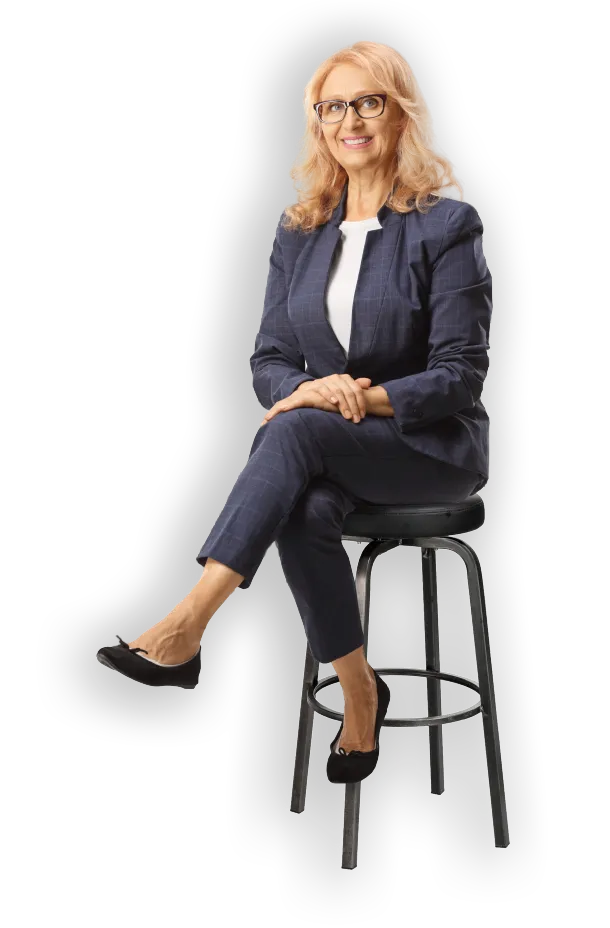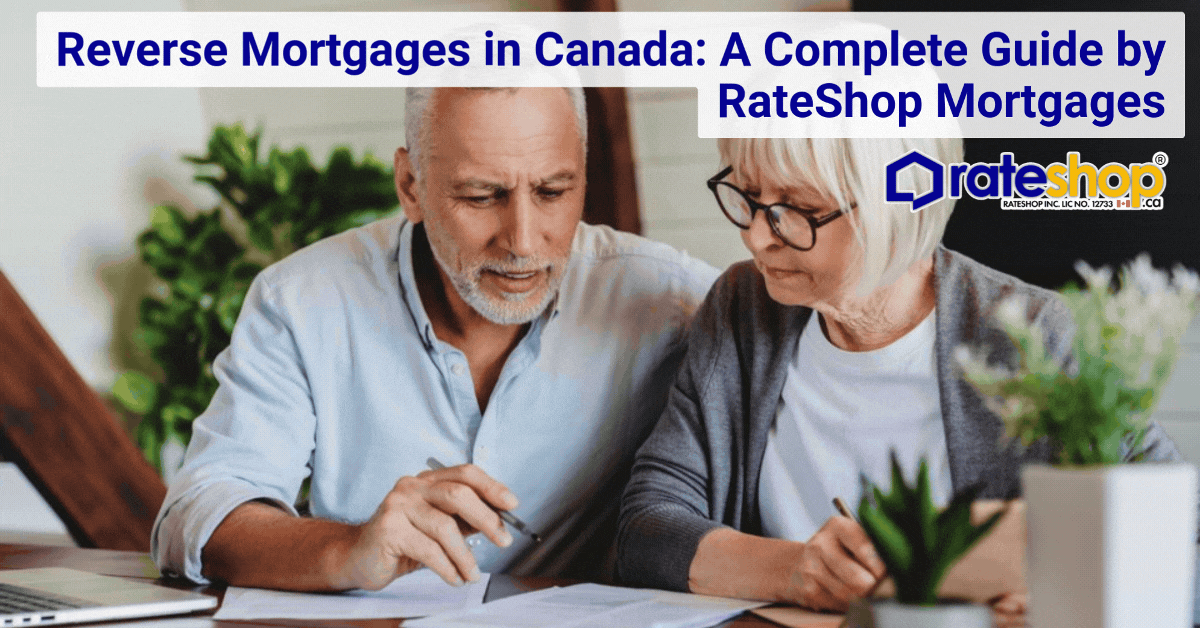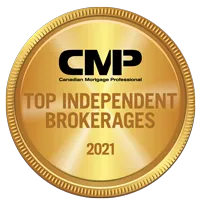Reverse Mortgages
Payment Free Reverse Mortgages
Access Your Equity: Unlock the value of your home for retirement income or financial needs.
No Monthly Payments: Maintain financial freedom without regular repayment obligations.
Tax-Free Funds: Use the funds without affecting your taxable income.
Age & Equity based lending: No income, No credit requirements

Discover the best mortgage rates and lowest mortgage rates in Canada at RateShop. Compare Canada mortgage lending rates from top lenders to secure your ideal home loan deal today.

Unlock Your Home's Value: The Ultimate Guide to Reverse Mortgages in 2025
Transform Your Home Equity into Tax-Free Cash Without Moving - RateShop's Expert Guide
Ready to Make Your Home Work for You?
Imagine accessing thousands of tax-free dollars from your home without selling it or making monthly payments. That's exactly what thousands of Canadian homeowners aged 55+ are doing with reverse mortgages in 2025. At RateShop, we've helped countless homeowners turn their home equity into financial freedom.
How Much Cash Could Your Home Provide?
Ever wondered how much your home could give back to you? Let's crunch some real numbers:
Meet Sarah and John from Toronto:
Home Value: $800,000
Ages: 70 and 68
Approved Amount: $425,000 tax-free
Or Linda in Vancouver:
Home Value: $1.2M
Age: 75
Approved Amount: $640,000 tax-free
Is a Reverse Mortgage Your Key to a Better Retirement?
The big question: Is this right for you? Let's be transparent about what you get:
What You'll Love:
Zero monthly payments (yes, really!)
Keep full ownership of your home
Tax-free money in your pocket
Stay in the home you love
No income requirements
What to Consider:
Interest rates are higher than traditional mortgages
Your equity decreases over time
Setup costs apply
Impact on your estate
5 Year - Fixed Term from
3.89%
Apply for your Best Rate in minutes.
Everyone's rate is unique.What's yours?
It is our job to get your lowest possible rate. Your rate qualification depends on certain factors, such as credit score and home equity as per regulations.
*Advertised rates may not be offered by this lender. Mortgage lender offers are aggregated by RateShop & its Brokerage Network subject to change without notice. Speak with our mortgage broker about APR and qualification requirements.

Protecting Your Legacy: What Your Family Needs to Know
Worried about your estate? Here's what happens after you're gone:
Your family has options (180 days to decide)
No negative equity guarantee (you'll never owe more than your home's worth)
Multiple ways to settle (sell, refinance, or pay off)
Pros and Cons of Reverse Mortgages for Retirees
Pros:
Access to Funds: Reverse mortgages provide retirees with access to cash that can be used for daily expenses, healthcare, or debt consolidation.
No Monthly Payments: Borrowers are not required to make monthly payments, which can ease financial burdens in retirement.
Stay in Your Home: You can continue living in your home for as long as you wish.
Flexible Payouts: Reverse mortgages offer flexible payout options, including lump sums, monthly payments, or a line of credit.
Cons:
Higher Interest Rates: Reverse mortgages generally come with higher interest rates than traditional loans.
Reduced Inheritance: The loan will be repaid from the proceeds of the sale of the home, potentially leaving less inheritance for heirs.
Eligibility Restrictions: Reverse mortgages are only available to homeowners aged 55 or older, and the home must be your primary residence.
Debt Accumulation: As interest compounds, the loan balance increases over time, which can reduce the amount of equity you can leave to your heirs.
Alternatives to Reverse Mortgages, Such as Downsizing or Refinancing
While reverse mortgages offer several advantages for retirees, they may not be the best option for everyone. Here are some alternatives to consider:
Downsizing: Selling your current home and purchasing a smaller, more affordable property can free up a significant amount of equity without incurring the costs of a reverse mortgage.
Refinancing: If you have a small remaining mortgage balance or no mortgage at all, refinancing may be an option. You can access home equity through a traditional mortgage with lower interest rates and monthly payments.
HELOC: If you're comfortable with monthly payments, a Home Equity Line of Credit can allow you to access funds from your home equity with a lower interest rate than a reverse mortgage.
Why Choose RateShop for Your Reverse Mortgage?
Rate Match Guarantee
Free Consultation
Canada-Wide Service
Expert Advisors
Simple Application Process
Frequently Asked Questions About Reverse Mortgages
What's the minimum age for a reverse mortgage?
55 years old for all borrowers on title.
How much can I borrow?
Up to 55% of your home's value, depending on age and location.
Will I lose my home?
No, you maintain ownership and can stay as long as you wish.
Are there monthly payments?
No regular payments required until you sell or move out.
What's the negative equity guarantee?
You'll never owe more than your home's fair market value.
As Seen And heard on





Quick Links
Contact Information
6 Indell Lane, Brampton ON L6T 3Y3, Canada
Local: 416-827-2626
Toll: 800-725-9946
RateShop Inc. is a Mortgage Brokerage offering lowest mortgage rates to Canadians. We are provincially licensed in the following provinces: Mortgage Brokerage Ontario FSRA #12733, British Columbia BCFSA #MB600776, Alberta RECA #00523056P, Saskatchewan FCAA #00511126, PEI #160622, New Brunswick FCNB #88426, Newfoundland/Labrador.
Copyright 2026. RateShop Canada. All Rights Reserved.

